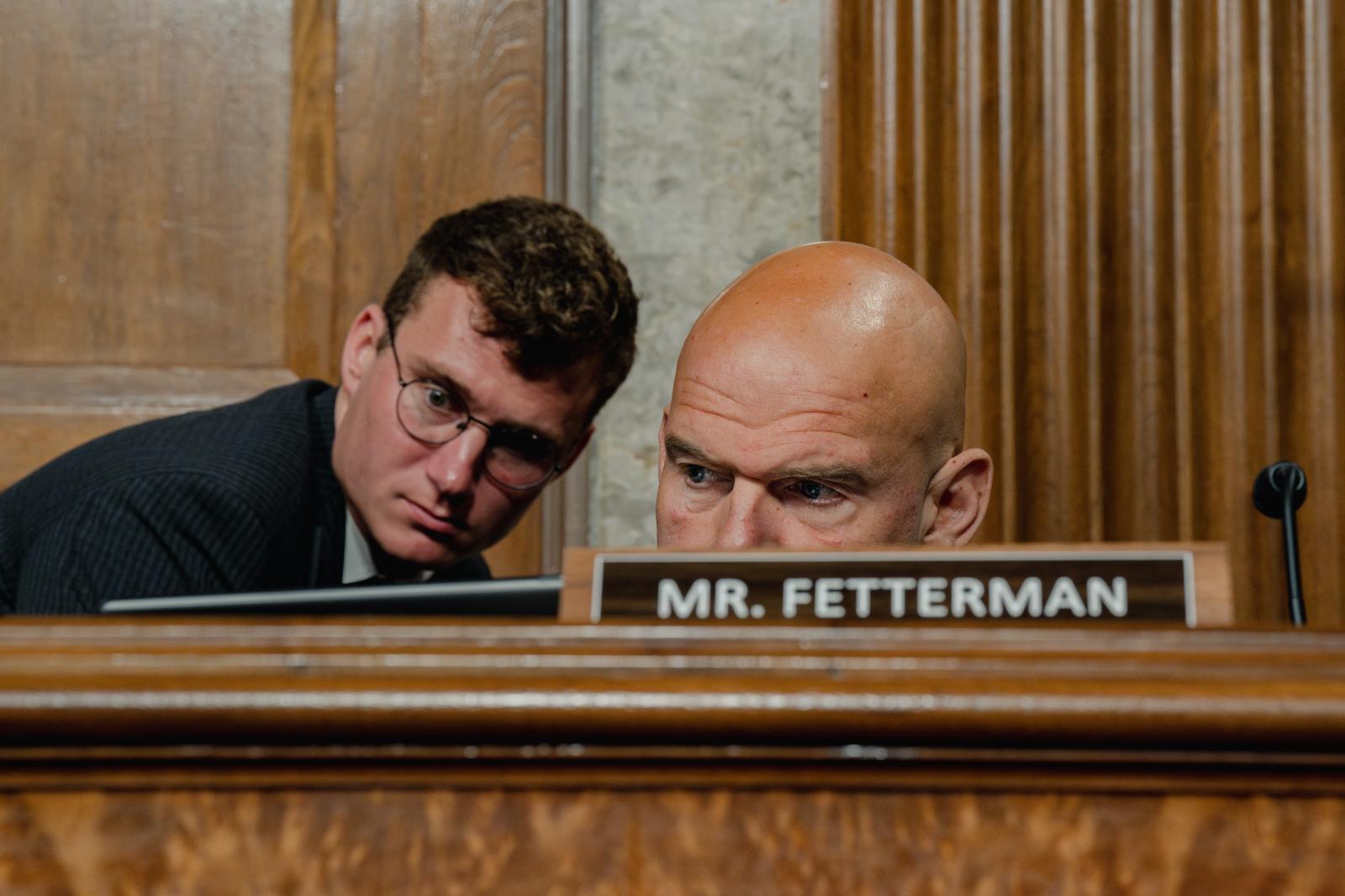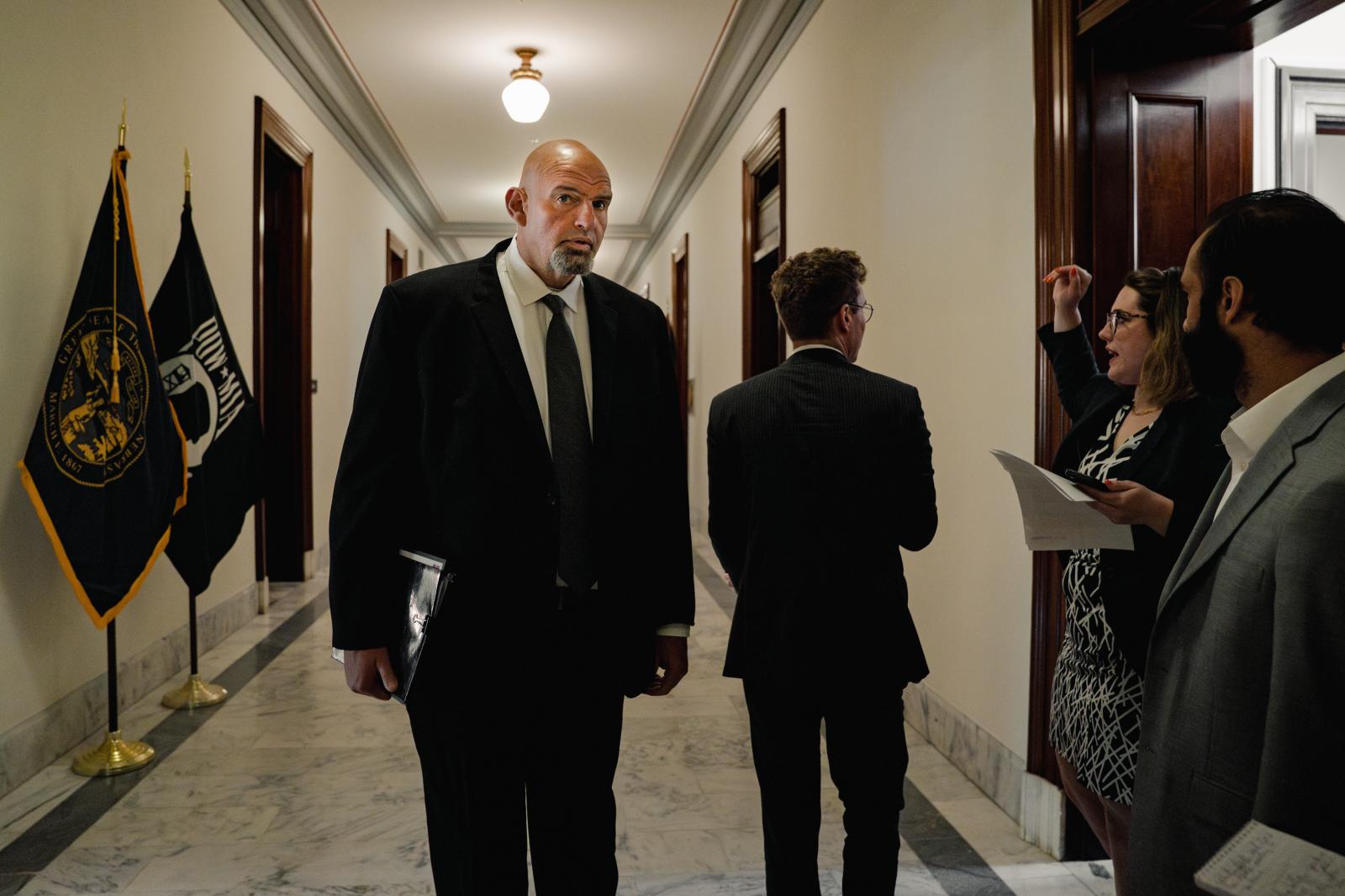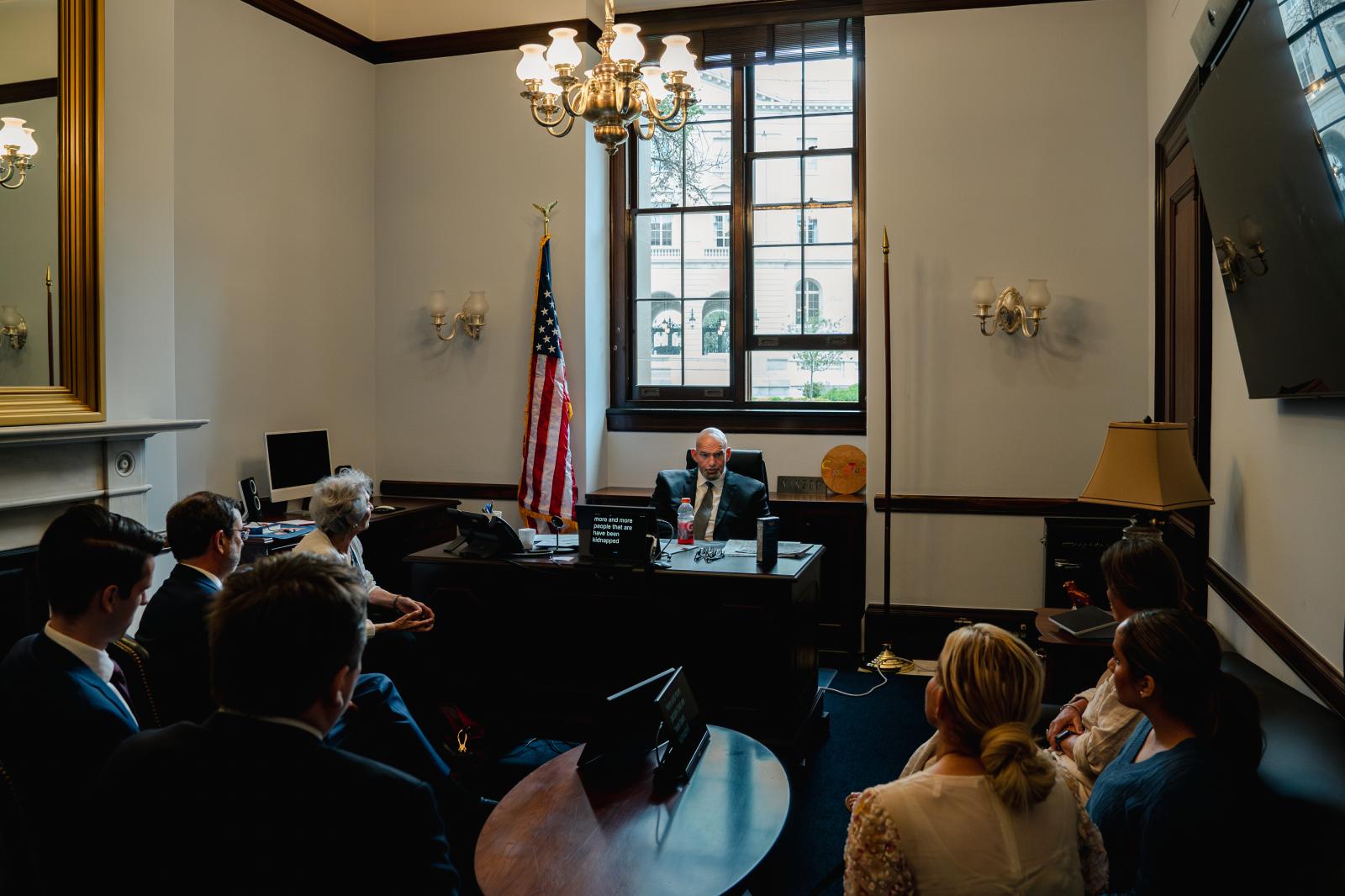Public Project
How John Fetterman Came Out of the Darkness
When he looks back on the past year—a year in which he nearly died, became a U.S. Senator, and nearly died again—it is the debate that John Fetterman (D-PA) identifies as the breaking point.
“The debate lit the mitch,” he says, then shakes his head in frustration and tries again. The right word is there in his brain, but he struggles to get it out. “Excuse me, that should be lit the mitch—” He stops and tries again. “Lit the match,” he says finally.
Oct. 25, 2022: the date is lodged in his mind. “I knew I had to do it,” he tells me. “I knew that the voters deserve to have what, what the stroke has done to me—transparency that way.” As soon as it was over, he knew it had not gone well. “I knew at that moment that I was going to be considered—consider myself—like, a national embarrassment,” he says. And then the darkness came.
The Pennsylvania Democrat is sitting behind a big wooden desk in his sparsely furnished Senate office. His 6-ft. 8-in. frame is clad in a white hoodie, gray sweat shorts, and sneakers—a sartorial signature he has maintained despite Senate rules. Surrounding us are three iPads propped up on stands—two facing him, one facing outward—that transcribe our conversation in real time, helping compensate for the auditory-processing difficulties brought by his stroke just over a year ago.
Fetterman has settled in to talk, through tears, about his treatment for and recovery from the severe depression that followed. In February, he checked into the neuropsychiatry unit at Walter Reed National Military Medical Center outside D.C., where he remained for more than six weeks. By the time he got there, he was a shell of himself—gaunt, listless, barely able to function. “I didn’t think I could be fixed,” he says. He didn’t actively contemplate suicide, he tells me, but he would have welcomed death if it came. He considers himself lucky to have survived.
Photo Editor: Kim Bubello
Reporter: Molly Ball
2,614










